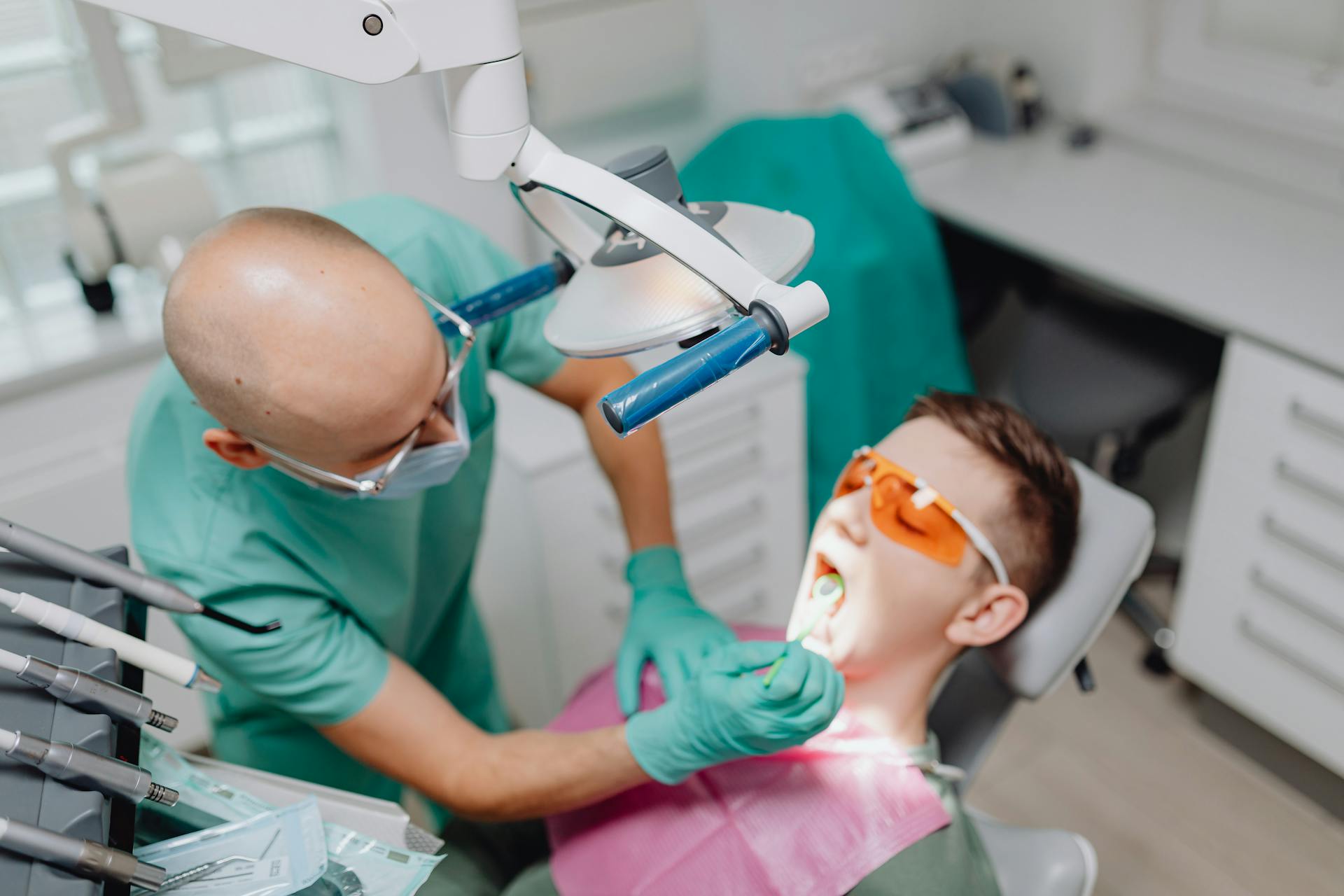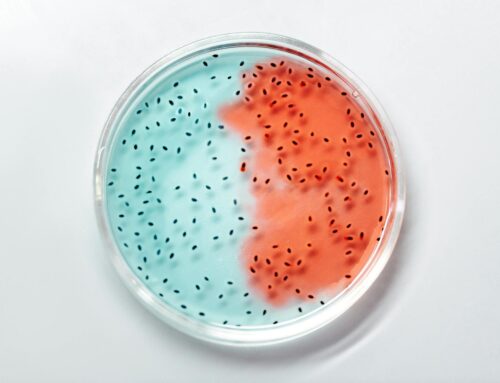Treating severe gum disease – known as Periodontal Disease – is very challenging. However, a research team has looked to find a new way of treating the condition. They have looked into the possibility of a type of immunotherapy, which uses the protein CCL2, being used as a treatment. Their findings could have a positive impact on treatments for the condition.

Recent research has looked into the possibility of a type of immunotherapy linked to the signalling protein CCL2 being used in the treatment of severe gum disease [1].
This is an interesting research topic, as immunotherapy is only ever normally used in the treatment of various types of cancer.
But with a lack of treatments for gum disease existing, looking at other options can be helpful. Improving treatment options could help those with gum disease.
Background
This research sought to improve treatment options for periodontal disease. Periodontal disease is a severe and advanced form of gum disease.
Common symptoms of periodontal disease include red gums, bleeding, bad breath, loose teeth and gum recession [2]. The condition can make eating difficult.
Gum disease develops over a long period of time, making it difficult to treat. Existing treatments include root planing and scaling – although these have limited effectiveness.
Moreover, periodontal disease is common, with research showing that 60% of American adults aged 65 or over have the condition [3]. Therefore, finding more treatments is highly desirable for healthcare professionals.
Immunotherapy and CCL2
This research involves the use of immunotherapy. However, immunotherapy is normally used in the treatment of various types of cancer.
Immunotherapy involves the immune system being changed in a way that makes it find and attack cancer cells – therefore attempting to kill the harmful cells.
This particular form of immunotherapy used a small cytokine called chemokine ligand 2 (CCL2) [1]. Cytokines are small proteins that act as a chemical messenger in the body’s immune system.
CCL2’s main role in the human body is to regulate cellular mechanics, which helps to assist in reducing inflammation [1]. Inflammation is a key symptom of periodontal disease.
The Research
The research was carried out by a team from the University of Pittsburgh in the United States. Their findings have been published in the Proceedings of the National Academy of Sciences journal [1].
The researchers noted that current treatment options for periodontal disease focuses on targeting bacteria. However, the researchers stated that bacteria doesn’t actually cause the condition [1].
Instead, bacteria triggers periodontal disease by activating the immune system, which results in inflammation and bone loss around the teeth [1].
Therefore, the researchers wanted to find a way of changing the immune system so that the progression of the condition could be stopped [1].
The team used two groups of mice models for the study, in order to replicate advanced periodontal disease in humans [1].
Periodontal disease was induced in both groups, which involved placing silk around a molar. This silk attracted bacteria, resulting in inflammation developing. Then, bone loss happened, like in periodontal disease [1].
Then, the researchers aimed to find out what happened when the mice were treated with CCL2 immunotherapy [1]. The first group of mice received CCL2 treatment immediately after silk placement. The second group received CCL2 treatment four days after silk placement [1].
This would allow the researchers to find out if CCL2 could prevent progressing periodontal disease, or if it could help from the start of the condition [1].
The researchers waited to see how the mouths of the mice reacted. In good news, they found that CCL2 treatment had a positive effect on both groups [1].
The team found that CCL2 treatment led to a reduction in bone loss, improvements in bone repair and less inflammation in the mouth [1].
Therefore, CCL2 treatment provided a range of benefits. These benefits could help to make CCL2 treatment become a mainstream periodontal disease treatment.
Summary
The research produced very positive results. CCL2 treatment certainly appears to have the potential to treat periodontal disease. By lessening inflammation and bone loss, CCL2 treatment can help to target some of the key symptoms of the condition.
Utilising immunotherapy in this manner is something very different to current approaches. This is summarized by one of the authors, Steven Little, who works at the University of Pittsburgh [4].
Little says “the potential for engineered systems to interact with the immune system of the periodontal space is tremendous and represents a completely different way to treat disease as compared to what is being done clinically now” [4].
In order to confirm the effectiveness of CCL2 treatment, human trials will need to take place next. Further research will go into the topic though before human trials are considered.
Using this form of immunotherapy appears to have a positive impact on periodontal disease. If it does prove to be successful, then it could help a huge number of people.
Thinking points…
[1] Gum disease, as discussed above, affects millions of people. However, it can be prevented. One way of helping to keep gum disease away is by attending regular dental check-ups, as these allow a dentist to check the health of your gums regularly. Moreover, they can provide advice, and suggest treatment if needed. We recommend that you book an appointment soon!
[2] As discussed earlier, there are a lack of treatment options for gum disease. However, these options do provide some help, and can slow the progression of the condition. If you have gum disease, you could discuss with your dentist the possibility of either root planing or scaling. Aside from this, remember to gently brush your gums with your toothbrush. By following the above, this can boost the health of your gums.
What we offer at Taradale Dental
Taradale Dental is a dental clinic based in Calgary, Alberta, Canada. At our Calgary dental clinic, we provide a range of services for our patients.
We advise our patients to attend our Calgary dental clinic at least twice per year for a regular dental check-up. At these check-ups, we provide a comprehensive review of a patient’s oral health. If any problems are detected, we have many treatments available. For example, these include cavity fillings and root canals. To strengthen your oral health, we recommend brushing your teeth at least twice a day and flossing regularly.
Here at Taradale Dental, we also have some cosmetic treatments available! These include dental implants, teeth whitening and Invisalign[TM]! Our patients find that these treatments have a positive impact on their appearance, confidence and self-esteem.
Moreover, the fees of our treatments at our Calgary dental clinic Taradale Dental are set in line with the Alberta Dental Fee Guide. This ensures transparent and fair pricing, with no hidden costs.
We hope to see you soon at our Taradale Dental clinic in Calgary! You can find out more about us by visiting our website https://taradaledental.ca/!
References
[1] Shehabeldin, M., Gao, J., Cho, Y., & Sfeir, C. (2024). Therapeutic delivery of CCL2 modulates immune response and restores host–microbe homeostasis. Proceedings of the National Academy of Sciences. 121 (36): e2400528121. DOI: https://doi.org/10.1073/pnas.2400528121.
[2] Cleveland Clinic. (2023). Periodontal Disease (Gum Disease). Available: https://my.clevelandclinic.org/health/diseases/21482-gum-periodontal-disease. Last accessed: 9th November 2024.
[3] Eke, P. I., Thornton-Evans, G. O., Wei, L., Borgnakke, W. S., Dye, B. A., & Genco, R. J. (2018). Periodontitis in US Adults: National Health and Nutrition Examination Survey 2009-2014. The Journal of the American Dental Association. 149 (7): p576-588. DOI: https://doi.org/10.1016/j.adaj.2018.04.023.
[4] University of Pittsburgh. (2024). Immunotherapy for gum disease? Study in mice shows promise. Available: https://www.sciencedaily.com/releases/2024/09/240930160200.htm. Last accessed: 9th November 2024.


